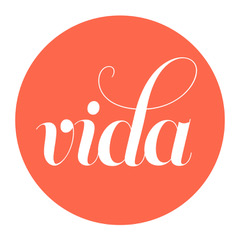
Every time you settle into a meditation session, drop your little one off at VIDA PLAY, or float out of a particularly sweaty Pilates class, thank Kaitlyn McConnell. Kaitlyn’s the boss of all of the amenities at VIDA that keep you (and your little ones) happy, healthy, and sane, no matter how wacky the workweek gets.
We caught up with Kaitlyn to learn more about what she does when she’s not at work, how becoming a mom forced her to be more intentional about what makes her happy, and how she chooses VIDA’s amenities (hint: just like a wedding DJ, she takes member requests!).
What do you do at VIDA, and how’d you get to your current role?
I’m the amenities coordinator, and I also coordinate anything related to VIDA PLAY. Just like Melanie and Greer, I’m a jane of all trades. Until recently, I’d been happy working from home and having a super flexible schedule as a yoga teacher and studio manager. Then my daughter turned five, and I realized how isolated I’d become. I’d known Melanie a long time, so I sent her a text asking if she’d heard of any new job opportunities. She responded and said, “Well, I need help with this new project.” So that’s how I came to the job. I literally just asked for it.
What’s your favorite part of managing all of VIDA’s many amenities?
One of the things I really love is how constantly changing it is. If somebody requests something, we want to try it out. Our philosophy is “All we can do is offer.” We’re not in the business of pushing things on people. If it gets used, we keep it. If it doesn’t, we let it go. People need different things at different times of the year. There’s no good or bad, there’s just what’s working.
What do you like about being part of the VIDA community?
Since I started working here, I’ve kind of come full circle about a lot of the things I used to be really passionate about. I was a women’s studies minor, and having access to like-minded activists is exciting. I love the yoga world, but it can have a little bit of tunnel vision from time to time. There’s such a broad spectrum of members at VIDA, so much support, and so many opportunities to collaborate. I love being a part of that world.
Can you tell us about a time you overcame or grappled with a major challenge?
I feel like it’s kind of taboo to call becoming a mom a challenge, but it is, especially because I had an identity rooted in independence, hardcore feminism, and being an activist. I thought all of those things were so defining about who I was. Becoming a mom made that a lot harder. My daughter is five now, so I’ve overcome most of that, but in recent memory that has been the single hardest challenge.
People talk about postpartum depression in terms of feeling suicidal or hopeless, but it can also just be an underlying anxiety that is not normalized. Our culture ignores women’s pain and suffering. Or we’re told to just move through it, that this is how it’s supposed to be. It was a challenge to feel human again and not just a cog in the wheel of some gender-normative machine. Becoming a mom was the first time that I realized “Wow, I have to make active choices about how to live, because I’m setting an example for other people now.” That challenge has turned into something really beautiful and awesome, but man, it’s tough. I love being a mom, but it’s still hard.
Do you have a hidden talent, interest, or passion?
People at VIDA probably don’t know that I’m an actor! I was a theater major in college. Then I moved to Los Angeles, but eventually my husband and I stopped acting and moved back up here. When my daughter turned 3, I started wondering what I used to like. And the acting has come back full force. I act and sing as much as I can. I am a member of a Shakespeare in the Park company called the Original Practice Shakespeare Company. This will be my third season with them. We do 17 shows over the course of the summer. Last year I did six, I played Hermia in A Midsummer’s Night Dream, and Ariel in The Tempest.
If you could go back in time and give yourself one piece of advice, what would it be?
To be fair, I don’t know if I would have heard this advice, but I would go back to somewhere around 12 or 14, to those first moments where I looked around and thought “Woah, the world is icky, I feel objectified.” I would have given myself permission to be even more angry, but I also would have reminded myself to give myself some credit. It’s easy to be angry at the world, but that doesn’t really solve anything. I would have given myself some tools to use the anger in a productive way. I became this punk rock, I hate everybody kid, but I was super lonely and not super happy. Maybe it would have helped if somebody had been like yeah, it’s awesome that you’re angry, here are some ways to use that anger.

